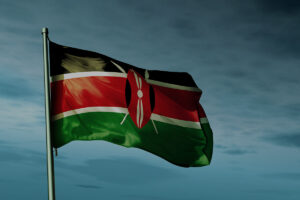The Holy Month of Ramadan is graciously over. But the lessons of the month should remain ingrained in us. This applies even to non-Muslims like myself.
By fasting during the month of Ramadan, Muslims intentionally step into the shoes of those who endure hunger on a daily basis. When you can feel some of the pinch of the wearer of shoes, you are able to empathize with them and truly help them.
In light of this, we should all ask ourselves whether we can feel the pain of fellow Kenyans, especially the millions who live below the poverty line.
To some of us, the poverty line is an abstract concept. But to millions of Kenyans, the poverty line is a daily reality. They live below roughly Sh290 or much less per day. According to the World Bank 19 million Kenyans live below the poverty line.
Please pause for a moment and imagine what exactly Sh290 can do in a day. It’s not enough even for someone who stays alone. How are you supposed to pay rent, pay transport, buy food and sustain your healthcare on Sh290? It’s impossible. Yet 19 million Kenyans survive on this amount every day.
The lesson of Ramadan should help us to remember these Kenyans every single day. Our legislators must enact policies that will drastically reduce poverty in the country.
There are three additional lessons that Islam can teach us.
Firstly, Muslims have a devout commitment to a set of beliefs that are anchored in the five pillars of Islam. For instance, because they are required to pray five times a day, they do so regardless of when or where the time finds them. Indeed, prayer should be a central part of our lives, not just a fringe religious rite. Christians should emulate the example of Jesus Christ who used to pray habitually at dawn.
Secondly, we should learn from the simplicity of Muslim burials. A few years ago, two well respected Kenyans who had been in public service for many decades passed away within a span of two weeks. One of them was a Muslim while the other one was a Christian. The Muslim leader was buried in a simple grave on the same day, without much fanfare. Meanwhile, the Christian leader was buried a couple of weeks later in a characteristically expensive ceremony.
Am not saying that Christians should start burying people like Muslims. Rather, we should learn something from the sheer simplicity of Muslim burials and apply that lesson of simplicity in our lives.
Thirdly, a truly generous spirit doesn’t have to broadcast its generosity.
Have you ever noticed that there are not as many incomplete mosques as churches? This testifies to the giving spirit that is prevalent in Islam. I find it quite refreshing that they also don’t scream about their giving from their rooftops the way some Christians are prone to do. Indeed, one of the most ignored verses in the Bible is Mathew 6:3 – But when you give to the needy, do not let your left hand know what your right hand is doing. Giving should be our second, silent nature.
Let me finish by most sincerely reminding our leaders that it is better for them to learn such lessons from Islam than to seemingly mimic Islamic rites and rituals for mainly political gain.
It was disgraceful and depressing to see some of our Christian leaders go to a deep extent of bowing in prayer the Islamic way during recent Islamic prayers. We can profoundly respect each other without temporarily imitating our respective beliefs or practices just for the optics. Not only is that insincere, it can also be misconstrued to be grossly disrespectful.
I pray that our Muslim brothers and sisters can also learn life lessons from Christianity. We can learn from one another, respect and even visit each other in our places of worship while remaining 100% committed to our spiritual journey. Think green, act green.



